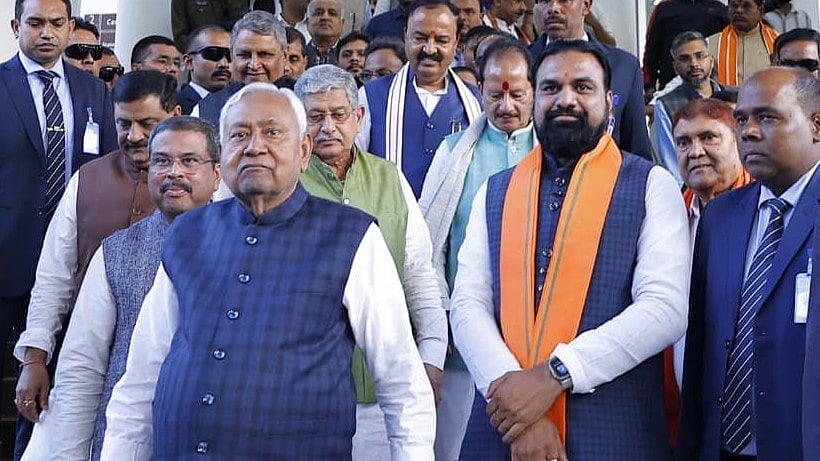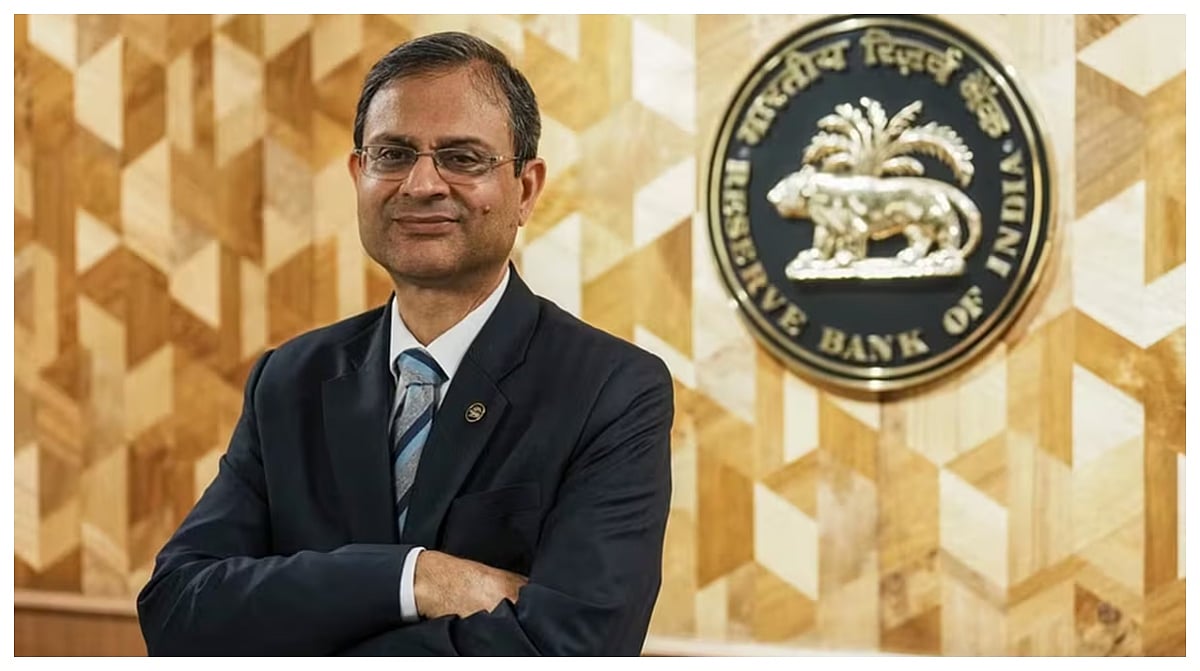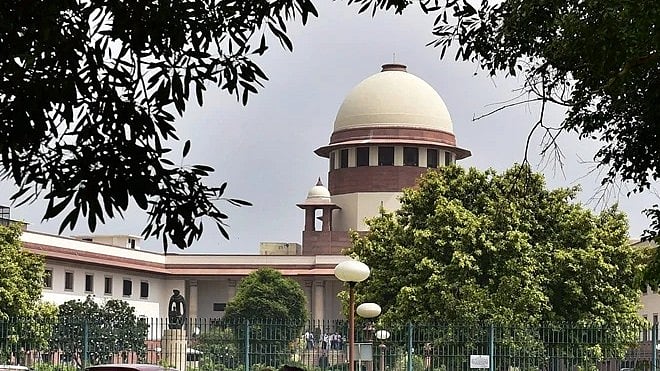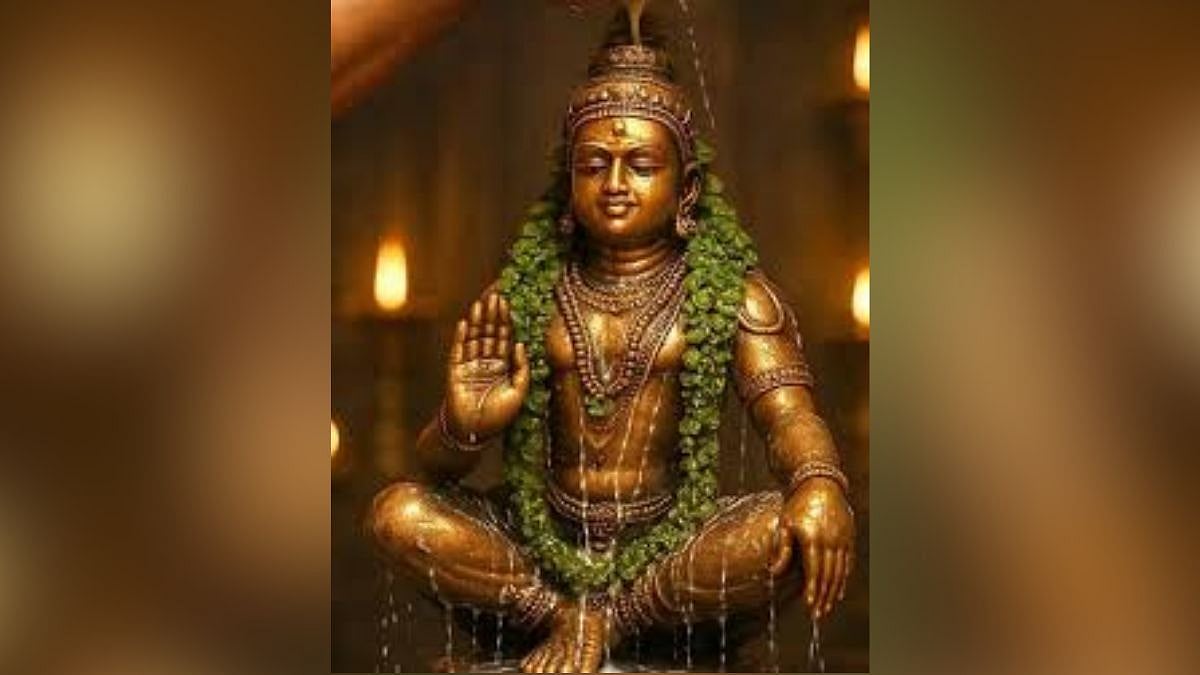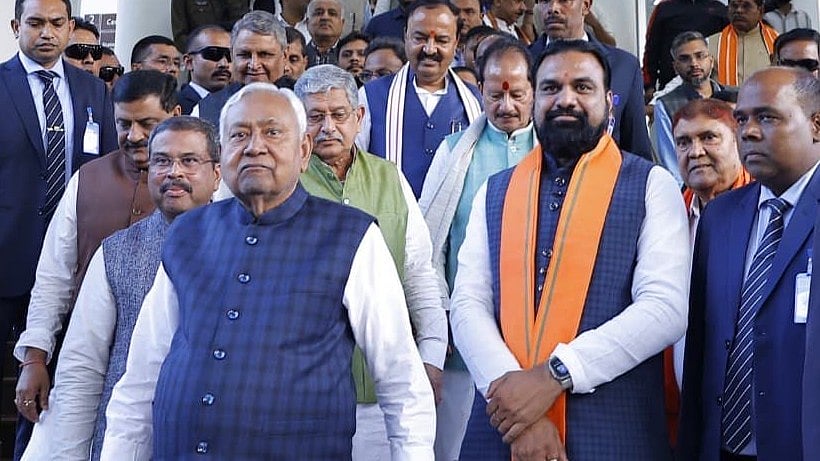The “vote for change” call that was heard quite loudly in election campaigning in Bihar amid difficult-to-implement electoral promises by both the political alliances, the NDA and Mahagathbandhan (MGB), did not sway the voters in the poorest Indian heartland state as much as the overwhelming faith they placed in continuity by endorsing the leadership of nine-term chief minister Nitish Kumar.
In politics, 20 years is a long time to remain an incumbent and still sway voters despite incumbency fatigue. That Kumar did it yet again, like he did in 2010, is an outstanding feat for a leader whose long rule in Bihar has not particularly seen the state flourish and where unemployment is a huge problem.
Though the BJP has emerged as the single largest party with 89 seats, there were serious doubts over Nitish’s ability to harvest a big mandate for his party. In fact, the JD(U) was widely expected to suffer another setback after a poor performance in 2020, when it had won just 43 seats.
That Nitish retained Bihar spectacularly with 85 seats for his party that appeared leaderless and directionless is indeed remarkable for a leader who was said to have reached the dead end of his career and was expected to lose control of his party.
Political “gossip” had it that the BJP, despite the JD(U) propping up the Modi government at the Centre, would eventually break Nitish’s party if it finished with fewer seats than its 2020 tally. But as the undisputed leader of the alliance and face of its campaign, Nitish’s brand, helped by welfare outreach and coalition unity, has silenced his critics with a fifth consecutive win.
It goes to Nitish’s credit that the veteran socialist leader, whose socialist and secular credentials have become suspect owing to his political and principled compromises for power, has sealed the sixth term for himself as chief minister, asserting his dominance that has exceeded the coalition’s expectations.
His unexpected landslide win, marred by a cloud of distrust in the working of the Election Commission (EC), will not only put an end to all speculations that showed the JD(U) in a poor light but also restore its image and credibility, giving leeway to Nitish to be more assertive both in the national and state capitals.
The near-clean sweep by the Nitish-led NDA has ended the vulnerability of Nitish and his party, quite apparent in the BJP leadership’s reluctance to declare him as the NDA’s chief ministerial face.
Despite the magnitude of NDA’s victory and the surge in the BJP’s seats, politically the BJP is on the back foot now. This is because in a politically and electorally significant state like Bihar, the credit for the NDA’s massive victory goes to Nitish Kumar, considering it was a state election and the NDA’s impressive mandate, virtually decimating the Opposition, is an endorsement of Nitish’s governance, despite its many failings.
It is why the Bihar outcome carries a lot of significance at the Centre, where the JD(U) is an important crutch for the Modi government. However, Nitish’s declining health and the BJP’s high score in Bihar may cause a shift in the power equation within the coalition.
While the decimation of the Opposition is obvious, a deeper look into numbers tells a slightly different story. Sure, the difference in vote share of the two alliances is around 10 per cent, but neither the RJD nor the Congress have done badly in terms of their respective vote share.
In fact, both have retained their core electoral support, though it did not translate into seats. It is not that this kind of a coalition sweep has not happened in Bihar before. It did occur in 2010 when the Nitish-led NDA had swept the state with a historic 206 seats.
At the time, the JD(U) had won a massive 115 seats with 22.58% of the vote share, and the BJP’s seat tally was 91 with 16.49% of the vote share, while the RJD was reduced to 22 seats with 18.84% of the vote share and the Congress was down to 4 seats with 8.37% of the vote share.
Since the decline of the Congress in the post-Mandal era, one national and two regional parties have emerged as dominant players in Bihar—the RJD, the JD(U) and the BJP. A coalition of two of the three main parties with help from smaller parties has scored a comfortable majority in every election since 2005.
Since February 2005, Nitish has been a crucial crutch for the BJP to expand its footprint in Bihar, where its vote share has steadily increased from 10.97% (33 seats) to 19.46% in 2020 (71 seats) and to 20.08% in 2025. In 2015, following Nitish Kumar walking out of the NDA prior to the 2014 Lok Sabha poll, the BJP won 91 seats (vote share 24.4%).
This explains its dependence on the JD(U) in the fractured, caste-driven polity of Bihar, where the RJD holds a strong influence on the Muslim-Yadav vote.
However, all said and done, what explains the kind of mandate the NDA has got this time? Not just psephologists but seasoned political pundits who expected a cliffhanger contest are also perplexed at the Bihar outcome, simply because no one saw such massive support for the alliance on the ground.
A lot of analysis and expert commentary has already been done on the whys of the Bihar outcome. Among the factors cited are high voter turnout, particularly of women, pro-women schemes, the controversial cash transfers to over 75 lakh crore women on the eve of the election, and the NDA’s effective caste combination balancing all sections of the electorate.
The reasons cited for the Opposition’s debacle include internal conflicts in the MGB, a lack of unity, and the ineffective nature of its campaign theme and unconvincing promises. There is little doubt that the NDA’s social coalition was bigger and formidable, which was also seen in the 2024 general election in which the NDA had a comfortable lead in 174 assembly segments with an 8% lead in vote share.
That the controversial last-minute transfer of Rs 10,000 during the campaign period, besides other pro-women schemes, played a significant role in wooing women who voted in greater numbers and may have substantially contributed to the alliance’s vote and seat share surge cannot be ruled out if election outcomes in Maharashtra and Madhya Pradesh are any indication.
Still, the Bihar landslide appears a “mystery” to many people because of the Election Commission’s partisan role in conducting the elections. In the absence of a level playing field, systemic bias, and the EC’s acquiescence in many a violation of election rules, besides its silence on all kinds of grievances and complaints over the sanctity of the electoral process, give rise to strong distrust in the EC, which is constitutionally mandated to be an independent arbiter of the democratic exercise.
Considering the growing crescendo on the issue of the EC’s fairness, the Bihar result appears unfair because of the controversial SIR that saw the deletion of 68 lakh voters and the addition of 24 lakh electors.
The writer is a senior independent Mumbai-based journalist. He tweets at @ali_chougule
